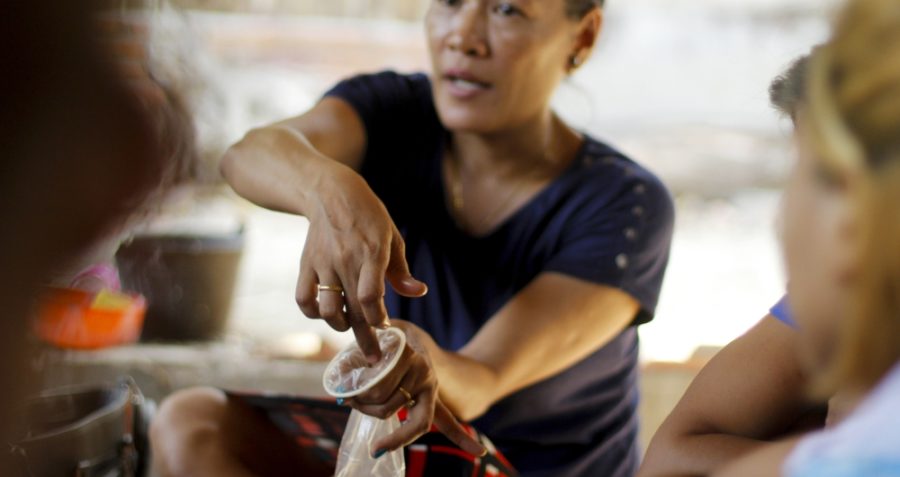Funders step up the fight against AIDS, TB and malaria
 ©️ Arkar Kyaw for Frontline AIDS
©️ Arkar Kyaw for Frontline AIDS
Global Fund replenishment event sees donors commit close to US$14 billion to tackle three deadly diseases
Global efforts to tackle three deadly diseases have received a boost as donors today committed close to US$14 billion towards the Global Fund to Fight AIDS, Tuberculosis and Malaria at its replenishment event in Lyon, France.
The Global Fund estimates that this support will enable partners to avert approximately 16 million deaths between 2021 and 2023 and prevent approximately 230 million new infections or cases across the three diseases – including a 61% reduction in the number of new infections since 2017.
“We are encouraged that funders continue to see the importance of tackling HIV, TB and malaria,” said Christine Stegling, Executive Director of Frontline AIDS. “While this new funding appears to fall slightly short of the target of $14 billion, it is the largest amount ever pledged to tackle these three diseases, and will help the Global Fund and its partners to secure unparalleled reductions in deaths and new infections.”
As one of the largest civil society partnerships implementing Global Fund grants, Frontline AIDS is urging the Fund to focus its attention on meeting the ambitious targets it has set on HIV prevention. Despite impressive increases in the number of people accessing HIV treatment over the past decade, the world is facing a prevention crisis.
Reaching those most at risk
UNAIDS estimates that approximately 1.7 million people acquired HIV in 2018. This number has remained stubbornly high for much of the past decade, and evidence collated by UNAIDS and others increasingly suggest that this is because proven HIV prevention tools – such as condoms and syringe and needle exchanges – are not reaching those who are most at risk. More than half of the new infections in 2018 were among people from key populations – including people who inject drugs, sex workers, prisoners and men who have sex with men – and their partners.
“The Global Fund must use its significant influence and financial resources to help us get HIV prevention back on track,” added Christine Stegling. “By supporting community-based organisations, who are often the frontline providers of HIV prevention services, the Global Fund can ensure that everyone has access to HIV prevention, especially those from marginalised groups.”
Frontline AIDS partners play a significant role in helping the Global Fund to achieve its results. For example, our partner in Myanmar, Mahamate, reached more than 25,000 people from key populations with HIV prevention services in 2018 through a Global Fund grant to work with 36 community-based organisations and networks.
Additionally, the India HIV/AIDS Alliance is implementing the Global Fund-supported Vihaan programme, which supported more than 1.3 million people to enrol in treatment and care programmes in 2018 and, in Cote D’Ivoire, ANS-CI’s Global Fund project provided a comprehensive package of treatment, care and support to almost 35,000 people living with HIV.
Tags
FundingHIV preventionThe Global Fund


